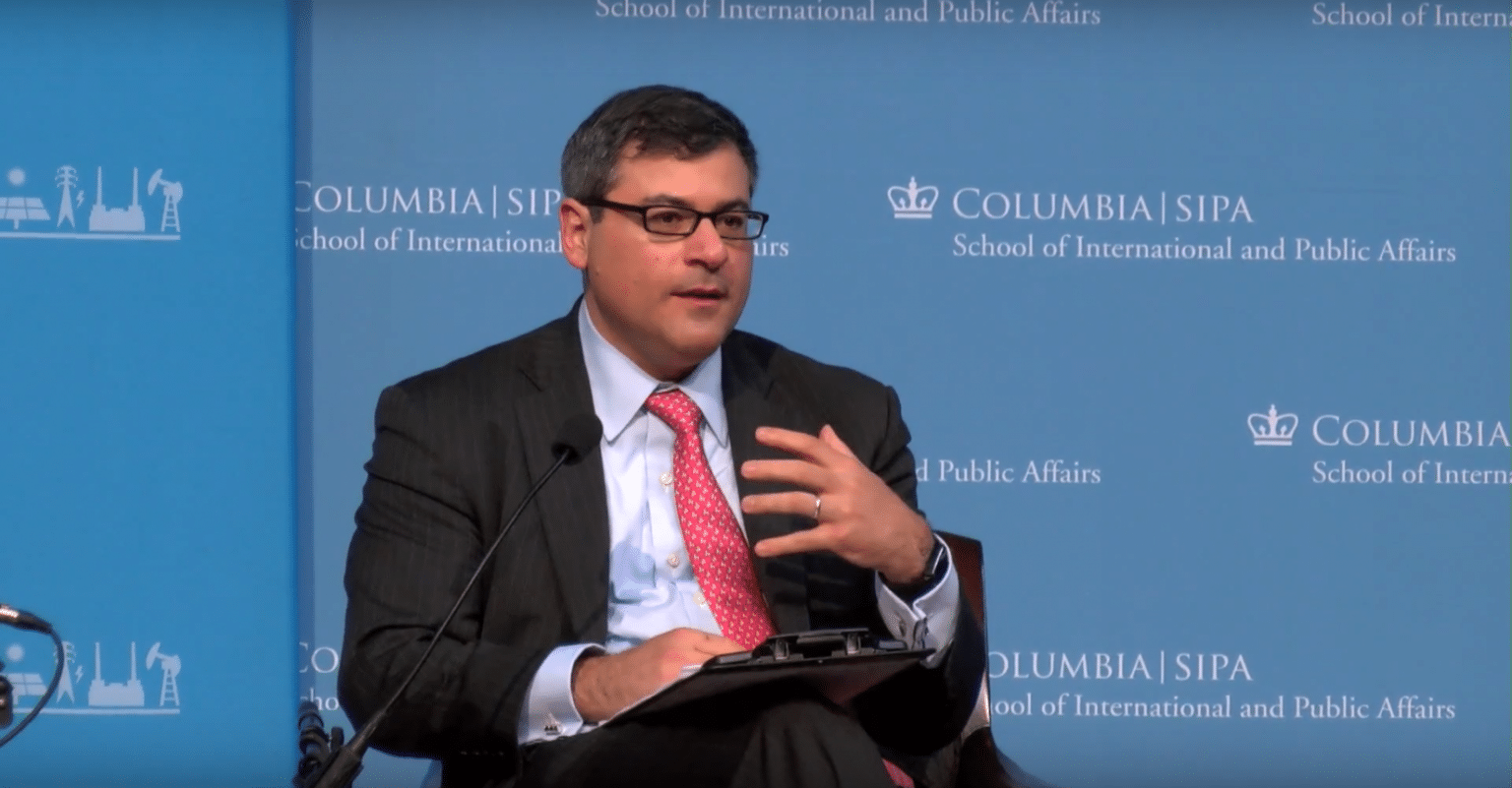According to ExxonMobil’s 2015 annual worldwide giving report, the company has upped the ante and increased its funding of Columbia University’s influential Center on Global Energy Policy (CGEP) to the tune of $50,000 for that year.
That’s an increase over the $25,000 the “private empire” gave to CGEP in 2014, as we reported in December. Run and founded by Jason Bordoff, President Obama’s former Senior Director for Energy and Climate Change on the Staff of the National Security Council, CGEP also features other big names: Carlos Pascual, former head of Secretary of State Hillary Clinton’s Bureau of Energy Resources and Global Shale Gas Initiative; Keith Benes, former Obama Administration State Department attorney-adviser; Jim Rogers, former CEO of coal giant Duke Energy and many others.
Exxon continues to bankroll climate change denial according to that same giving report and has now funded the climate denial echo chamber to the tune of $33 million since 1998. The company, currently under investigation by close to two dozen state-level Attorneys General offices for funding denial while having internal well-studied knowledge of the climate crisis, also received mention numerous times during the U.S. Senate Democrats’ calling out of the climate change “web of denial” on the Senate floor.
CGEP received a comparable load of money from Exxon, or more, when juxtaposed with other notable nodes of the climate denial machine. Those include the Federalist Society ($15,000), National Black Chamber of Commerce ($75,000) and the American Legislative Exchange Council ($66,500).
According to CGEP‘s website, it gets “support from individuals, foundations, and corporations,” though it does not disclose its funders on its website.
Bordoff is often quoted by prominent media outlets on energy issues and he co-authored a report in 2014 titled, “American Gas to the Rescue? The Impact of US LNG Exports on European Security and Russian Foreign Policy,” which he published with Democratic Party presidential candidate Hillary Clinton’s energy adviser, Trevor Houser. That report’s Acknowledgements section thanks former Cheniere CEO and founder Charif Souki for his help in reviewing the contents of it, though funding of the report itself goes undisclosed.
At the time, Houser served as a resident fellow at the Peterson Institute for International Economics, which also receives funding from ExxonMobil and other oil and gas giants such as Chevron, Eni, Statoil and BP.
Photo Credit: YouTube Screenshot
Subscribe to our newsletter
Stay up to date with DeSmog news and alerts






